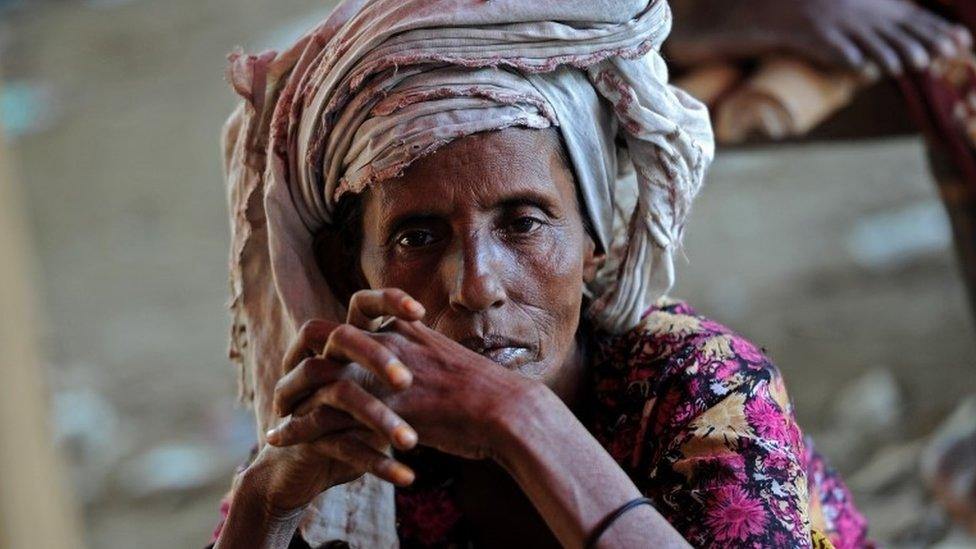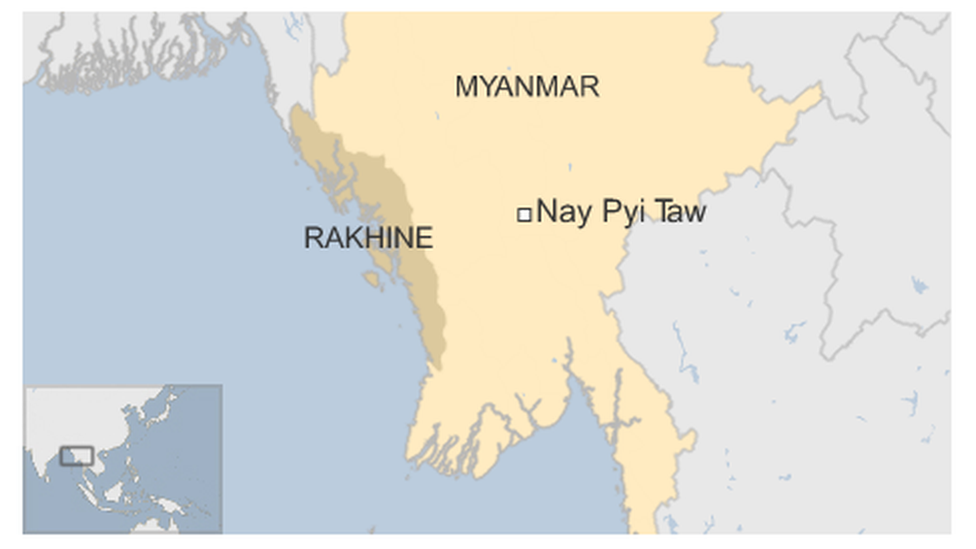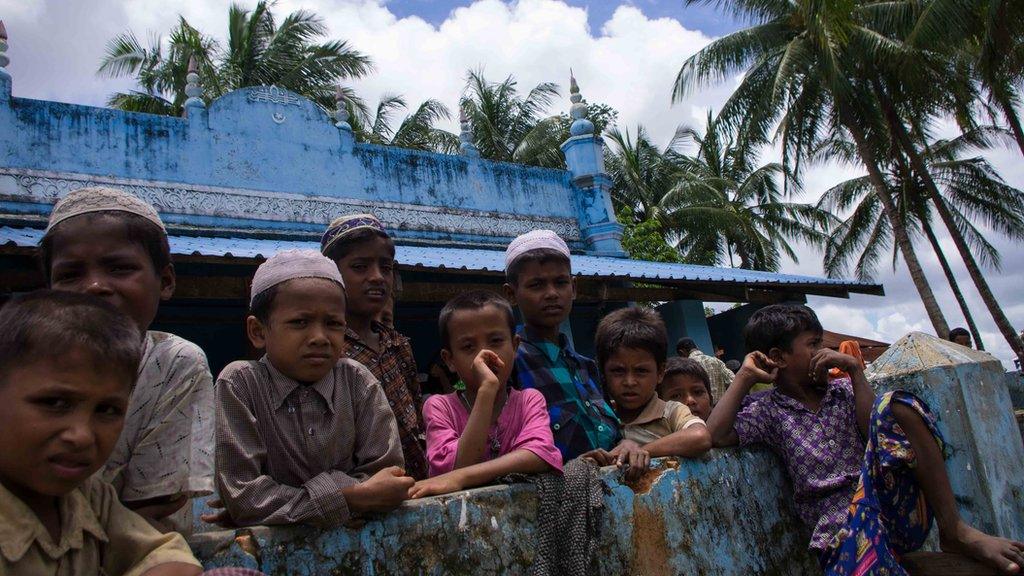Myanmar lifts Rakhine emergency four years after communal violence
- Published

The Muslim Rohingya ethnic minority is denied full citizenship in Myanmar
Myanmar's outgoing President Thein Sein has lifted the state of emergency in the state of Rakhine, say state media.
The order was imposed in June 2012 as violence flared between Buddhist and Muslim communities.
Dozens of people died and about 140,000 people, mainly from the Muslim Rohingya ethnic minority, were forced to flee their homes in the western state.
Most of them have been unable to return, forced to live in refugee camps and denied basic rights.
"According to the Rakhine State government, there is currently no threat of danger to people's lives," said an order published in state media. It means the military will no longer be providing day-to-day security in the area.
It comes as Thein Sein ends his five-year term as president. On Wednesday President-elect Htin Kyaw will be sworn in, after the National League for Democracy won a landslide victory in the November elections, ending decades of military-backed rule.

In 2012, the rape and murder of a Buddhist woman sparked violence. More than 200 people died.
Most of the Rohingya that were driven out because of the tensions now live in camps for internally displaced people with limited access to food, healthcare and education.
The Rohingya are denied full citizenship as they are seen as illegal migrants from neighbouring Bangladesh. Rising Buddhist nationalism in Myanmar has led to further discrimination.
The United Nations refers to them as a "persecuted religious and linguistic minority".
Last year, thousands of Rohingya were found stranded on boats in the Andaman Sea trying to leave Rakhine for Malaysia, bringing the world's attention to their marginalisation.
- Published16 October 2015
- Published1 July 2013
